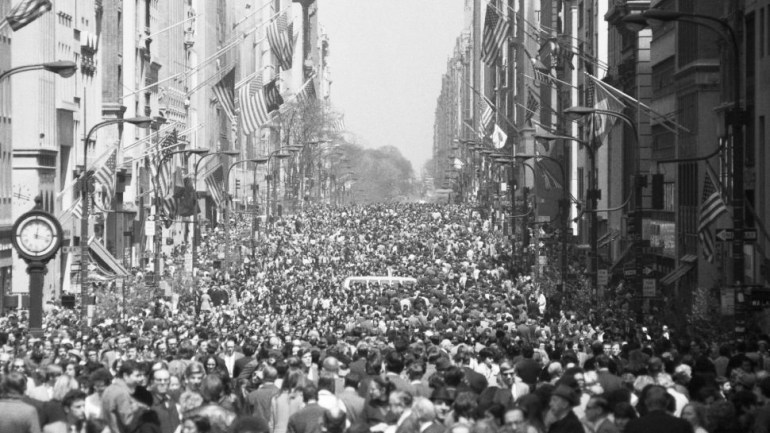On April 22 of each year the world celebrates Earth Day, an annual event held with the aim of increasing societal awareness of environmental issues, and celebrated around the world through parades, conferences, school projects and other activities.
This year 2022 marks the 52nd celebration of Earth Day, the day marked for many events around the world.
According to the website of EarthDay.ORG - a non-profit organization coordinating these events - the theme of Earth Day 2022 is "Invest in Our Planet", and this theme aims to encourage companies, governments and citizens to act now on climate change and other issues of For a better future.
Live Science reports that despite the passage of more than 50 Earth days, climate change and other environmental issues continue to threaten the health of the planet, notes Michael Mann, professor of atmospheric sciences at Penn State, author of The New Climate War. : The Fight to Take Back Our Planet" (The New Climate War: The Fight to Take Back Our Planet), suggests that Earth Day is an opportunity to take stock of our situation in the fight to live sustainably on this planet.
When did Earth Day start?
Senator Gaylord Nelson initiated Earth Day in 1970, an event that helped increase community support for the creation of the Environmental Protection Agency (EPA) to address environmental issues, and since then Earth Day has contributed to the passage of numerous environmental laws in the United States.
Inspired by student protests against the Vietnam War, Nelson started Earth Day after seeing the environmental damage caused by the oil spill in Santa Barbara, California in 1969. ".
Nelson persuaded Representative Pete McCluskey of California to be co-chair, appointed political activist Dennis Hayes as national coordinator, and with a team of 85 employees selected by Hayes, mobilized 20 million people across the United States on April 22, 1970.
Crowds protesting Earth Day 1970 (websites)
Why April 22?
The team chose April 22, because they believed a day in the spring break and end-of-year exams would encourage the largest number of students to participate. On this day, thousands of colleges and universities protested against environmental destruction, but not just the students, the event enjoyed great success. With national media attention and many people gathering in public to talk about the environment and find ways to defend the planet, total participations reached about 10% of the total US population.
"On that day, Americans made clear that they understood and were deeply concerned about the deterioration of our environment and the squandering of our resources," Nelson wrote in a 1980 journal.
The annual event grew in size and popularity after 1970, and in 1990 Earth Day became a global event, with 200 million people participating in 141 countries.
Climate change impacts include extreme weather events such as floods and severe wildfires (Getty Images)
Why do we celebrate Earth Day?
Earth Day is celebrated to raise community awareness about the environment, and to mark the anniversary of the first Earth Day.
After decades of persistent environmental issues, Earth Day notes that the fight for a clean environment has become more urgent to tackle environmental issues, particularly climate change.
The world "needs to fight climate change more aggressively to keep our planet habitable," said Jonathan Overbeek, dean of the School of Environment and Sustainability at the University of Michigan.
What is the effect of Earth Day?
The first Earth Day helped put environmental issues on the national agenda in the United States, and the event also inspired various environmental legislation in the 1970s including the Clean Water Act (1972) and the Toxic Substances Reduction Act (1976), according to Columbia University.
The impact of Earth Day has gone far beyond the borders of the United States. For example, the United Nations General Assembly officially recognized April 22 as International Earth Day in 2009, according to the United Nations Environment Program.
On Earth Day 2016, the United Nations adopted the Paris Climate Agreement that made countries around the world aim to keep global warming below 1.5°C (2.7°F) and well below 2°C (3.6°F) compared to pre-industrial levels.
On Earth Day 2016, the United Nations adopted the Paris climate agreement to keep global warming below 2°C (Shutterstock)
Earth Day Celebrations
Each year, organizations and individuals participate in Earth Day activities, projects and campaigns to promote and protect the environment. Earth Day quizzes are a popular activity. There are organizations such as NASA, Conservation International and Earth Day (EARTHDAY.ORG). ), has online tests for people to assess their environmental knowledge, and children in the United States often celebrate by creating Earth Day-themed school projects such as crafts and drawings.
“There are two simple ways to celebrate Earth Day with the goal of making the world a little better: one is to advance understanding of important environmental issues by increasing the number of people who are aware of the critical actions that We need to take it to protect our environment, and the second is to commit yourself to serving on or around Earth Day, by planting some trees, cleaning streams or helping out local parks."

